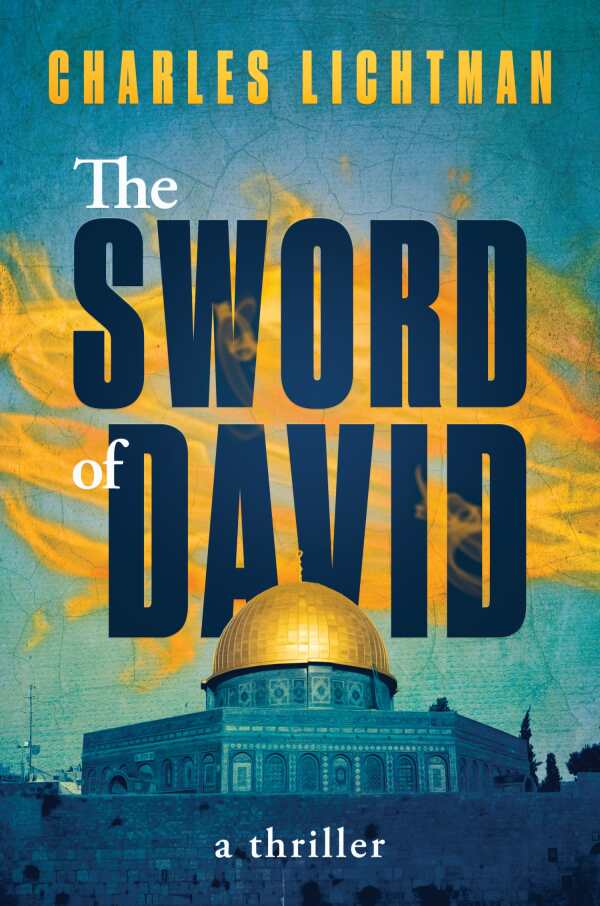The Sword of David
An ex-Mossad agent tackles international challenges in this thriller with a heavy message.
Ancient religious artifacts and Middle Eastern rifts direct Charles Lichtman’s bold thriller The Sword of David, which centers on a quest to preserve peace.
In this three-part novel drawing on an alternate history, the Ark of the Covenant was hidden, and the tablets inscribed with the Ten Commandments went missing during a Roman invasion. Then, in 2019 in Jerusalem, Klein, a former Israeli Special Forces officer who works at the Temple Mount, rediscovers the Ark. He’s tasked with recovering the tablets, too, which he seeks with help from his colleagues. In the course of the brisk story, he’s also sent to assassinate an incendiary mullah, kidnap a leader with ties to financing terrorism, and forestall a coordinated global attack.
The book’s broad roster includes a Palestinian family whose members are pained by their son’s involvement with Hamas, a notorious Hamas recruiter, and figures who conspire to deepen the Israeli-Palestinian divide. ISIS and al-Qaeda factor in, as does a Muslim group that organizes for peace. At a more local level, Klein is supported by figures like a grand master of the Knights Templar. The book’s perspective alternates between them in an intriguing manner; their stories are parallel and eventually converge. Throughout, conversations about longstanding conflicts reveal the cast’s impassioned positions; these speeches are blunt and idealistic in turn.
But despite the broadness of the cast, the book’s characterizations come in outlines. Klein is unfazed by the weighty implications of his situation, even after he’s prophesied as the person chosen to lead a battle against dark forces. And even considering his military past, he fells obstacles with heroic ease: sudden problems arise, and he resolves them just as fast. Further, the book’s extremists are too familiar in their zealotry, and some of the cast are present just to advance scenes, as when a girl is killed in a terrorist attack, and grieving is foregone so that the novel can highlight injustices against innocent people.
Klein’s adventures in Ethiopia, England, France, and the Vatican are suspenseful, though the transitions between them are slight. Klein seldom reflects on his activities, and he is seldom challenged about them. Many practical details are assumed to be taken care of by Klein’s Mossad handlers, and key clues about the tablets emerge through another character’s admissions about their history. Some of the book’s background and explanatory details, including about an antisemitic volume in a bookshop, feel imposed, rather than natural. These issues accumulate as the story focuses more on delivering its optimistic message about all religions and peoples finding harmony. Instead of resulting in an integrated conclusion, the book’s abrupt twists lead to a dialogue-heavy interfaith ceremony.
In the serpentine novel The Sword of David, the commonalities between religions are the ultimate focus.
Reviewed by
Karen Rigby
Disclosure: This article is not an endorsement, but a review. The publisher of this book provided free copies of the book and paid a small fee to have their book reviewed by a professional reviewer. Foreword Reviews and Clarion Reviews make no guarantee that the publisher will receive a positive review. Foreword Magazine, Inc. is disclosing this in accordance with the Federal Trade Commission’s 16 CFR, Part 255.

